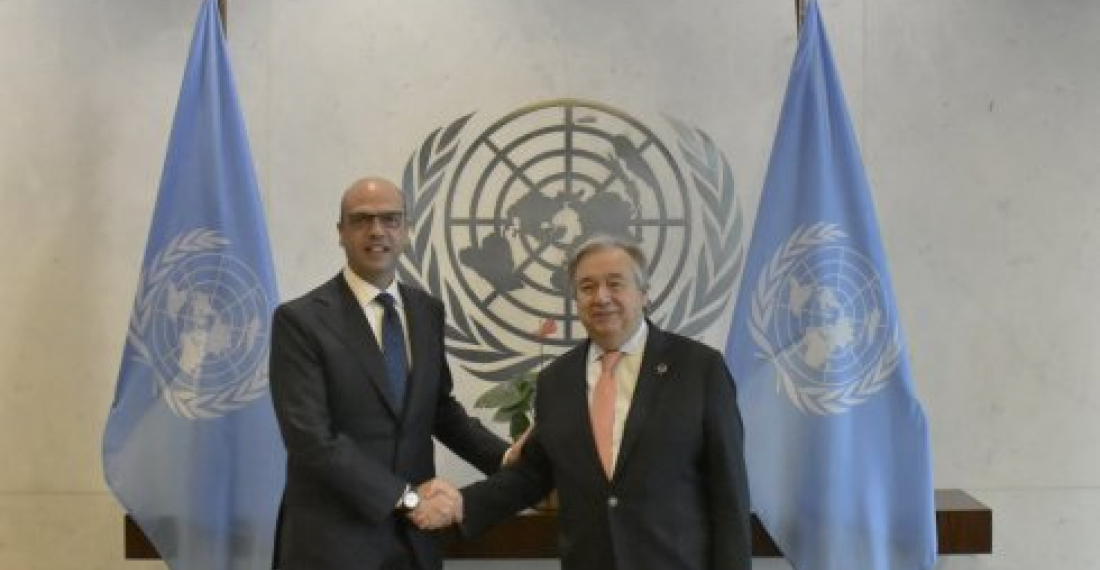Addressing the UN Security Council on Thursday (8 March), Italian Foreign Minister Angelino Alfano, who is currently chairman-in-office of the Organisation for Security and Co-operation in Europe (OSCE), reiterated the Chairmanship's committment to continuing efforts to resolve protracted conflicts in Karabakh and in Georgia, and in other parts of the OSCE area.
The Italian Foreign Minister told the Security Council that Italy was pursuing a more active approach to the three dimensions of security envisaged by the OSCE, namely political-military, economic-environmental and human rights, and on the the new transnational challenges, namely terrorism, cyber security, the combat of illegal trafficking, including drug trafficking and stolen cultural patrimony.
Earlier on Thursday (8 March) Foreign Minister Alfano also met with the Secretary-General of the United Nations Antonio Gutteres.
source: commonspace.eu with the website of the Farnesina
photo: On Thursday (8 March) Italian Foreign Minister Angelino Alfano met with the Secretary-General of the United Nations Antonio Gutteres (picture courtesy of the Farnesina)







